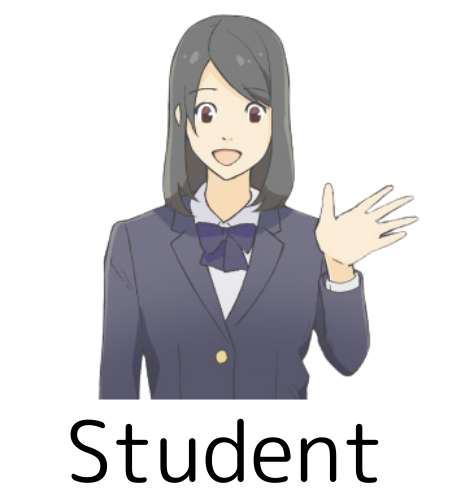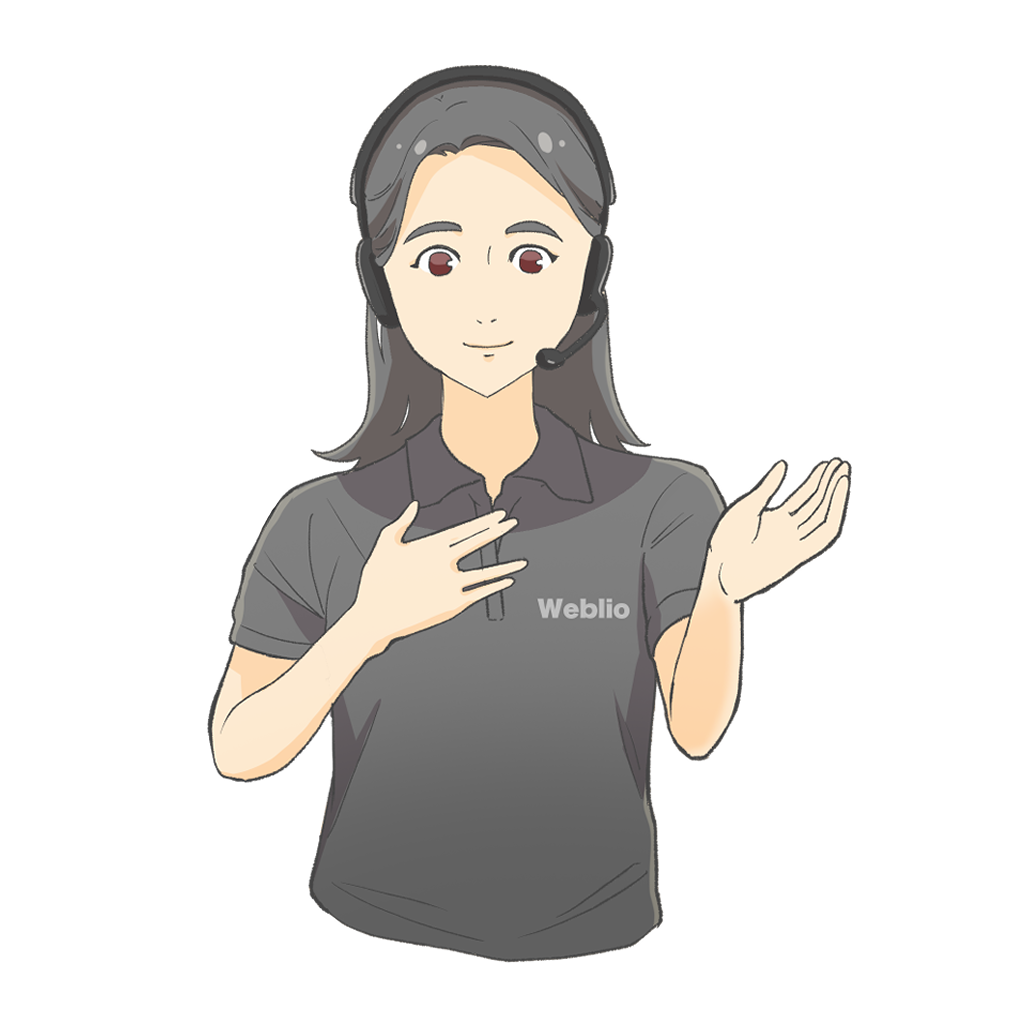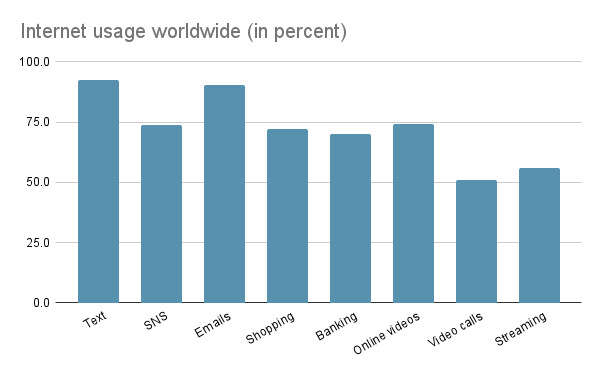Part A Introduction

Part A_1 Introduction
Let’s introduce ourselves to each other.
自己紹介をしましょう。
My name is ________. What is your name?
Part A_2 Introduction
I am ________. Nice to meet you.


Part A_3 Introduction
Nice to meet you too, ________. What did you have for breakfast/lunch today?
Part A_4 Introduction
| Answer: |


Part A_5 Introduction
________________________________. Let’s begin our lesson!
Part B Listening 1

Part B_1 Listening 1
Please listen carefully while I read the passages.
Then, choose the letter that matches the content.
Then, choose the letter that matches the content.
講師がパッセージを一度読み上げます。そのあと内容に合う文章を次のa~dから選びましょう。最後に答え合わせをします。

Part B_2 Listening 1
| a. | It is not recommended to keep your privacy settings on for every account you have on social media. |
| b. | When receiving unexpected files or emails, you may open them but with heightened security. |
| c. | Only buy from secure sites because we provide our credit card or bank account information when purchasing online. |
| d. | It is safe to download from any site, but we must choose one that is popular. |
Part B_3 Listening 1
| Answer: |


Part B_4 Listening 1
Please listen carefully while I read the short passage once. Then, choose the letter of the correct answer.
パッセージの続きを一度だけ読みます。そのあと内容に合う文章を次のa~dから選びましょう。

Part B_5 Listening 1

| a. | An adult Internet user goes shopping in malls than shopping online. |
| b. | An adult Internet user communicates through text messages the most. |
| c. | An adult Internet user does not frequently use online banking. |
| d. | An adult Internet user do not usually make video calls. |
Part B_6 Listening 1
| Answer: |


Part B_7 Listening 1
Now, let’s review your answers.
では、あなたの答えを復習してみましょう。
Part B_8 Listening 1

Part C Listening 2

Part C_1 Listening 2
Please read the situation below. Then, please listen carefully while I read the dialogue.
After that, please answer the following questions.
After that, please answer the following questions.
下記の状況を読んでください。その後講師が会話文を音読するので、質問に答えましょう。
Part C_2 Listening 2
Harry and Roland are talking about studying for their upcoming exam.


Part C_3 Listening 2
1. What is Roland’s main point?
| a. | He prefers to cram rather than study days before the exam. |
| b. | Studying last minute gives him better memory retention to remember information. |
| c. | Studying in one sitting before the exam day is important in passing exams. |
| d. | He takes note of the topics he needs to study little by little. |
Part C_4 Listening 2
| Answer: |


Part C_5 Listening 2
2. What does Harry do to keep the information fresh in his mind?
| a. | He studies the materials every night. |
| b. | He studies at least 5 days before the exam. |
| c. | Studying little by little helps him become more organized. |
| d. | Studying in advanced helps him become more prepared. |
Part C_6 Listening 2
| Answer: |


Part C_7 Listening 2
Now, let’s review your answers.
では、あなたの答えを復習してみましょう。
Part C_8 Listening 2

Part D Listening 3

Part D_1 Listening 3
Please read the situation below. Then, please listen carefully while I read the dialogue.
After that, please answer the following questions.
After that, please answer the following questions.
下記の状況を読んでください。その後講師が会話文を音読するので、質問に答えましょう。
Part D_2 Listening 3
4 students (Rica, Charles, Linda, and Daniel) are talking about internet consumption.


Part D_3 Listening 3
1. After the conversation, how many of 4 people agreed that Internet consumption has been increasing?
Part D_4 Listening 3
| Answer: |


Part D_5 Listening 3
| 2. Which picture matches the idea of Rica, Linda, and Daniel? |
| a. |
|
b. |
|
| c. |
|
d. |
|
Part D_6 Listening 3
| Answer: |


Part D_7 Listening 3
Now, let’s review your answers.
では、あなたの答えを復習してみましょう。
Part D_8 Listening 3

Part E Vocabulary

Part E_1 Vocabulary
We will read aloud the words below. Please repeat after me. I will check your pronunciation.
単語を音読します。講師に続いて読みましょう。講師は発音を確認します。
Part E_2 Vocabulary
| 1. | stimulant |
|
興奮剤
|
|
| 2. | risk |
|
危険、恐れ
|
|
| 3. | fluctuate |
|
変動する
|
|
| 4. | ease |
|
楽にする
|
|
| 5. | moderate |
|
適度の
|


Part E_3 Vocabulary
Now, let’s review some words from part E_2.
ではいくつかの単語、文章を復習してみましょう。
Part E_4 Vocabulary

Part F Reading

Part F_1 Reading
Please read aloud the whole passage below. I will check your pronunciation and intonation.
以下の文章を声に出して読んでみましょう。講師が発音、イントネーションについて確認します。
(Please send the mispronounced words and phrases to your student.)
Part F_2 Reading
Caffeine: The World’s Favorite Drug
For many people, there is only one source of energy for one of our oldest stimulants: caffeine. Caffeine can decrease fatigue and increase alertness, but is it really beneficial for us?
Scientist Charles Czeisler says that we consume caffeine to stay awake but later to prevent us from getting the rest we need. Caffeine consumption has also been linked to an increased risk of some cancers and bone diseases. Additionally, heavy caffeine users’ moods fluctuate from high to low, and they suffer severe headaches.
However, studies have shown that caffeine can help ease muscle pain. Moreover, it improves performance on tasks like solving simple math problems.
Caffeine has real effects, but they are usually moderate. This is why caffeine is found in so many of the world’s most popular beverages.


Part F_3 Reading
Now, let’s review some words and sentences from part F_2.
ではいくつかの単語、文章を復習してみましょう。
Part F_4 Reading

Part G Reading

Part G_1 Reading
I will ask the following questions. Please answer questions 1 to 2 based on the passage, and 3 based on your opinion.
講師が3つ質問をします。1~2はパッセージの内容に基づいて、3はあなたの意見を伺います。

Part G_2 Reading
| 1. | To where has caffeine consumption been linked? |
Part G_3 Reading
| Answer: |


Part G_4 Reading
| 2. | Based on the passage, what positive effects do caffeine have? |
Part G_5 Reading
| Answer: |


Part G_6 Reading
| 3. | Do you agree with the benefits and disadvantages of caffeine? Please tell me more about it. |
Part G_7 Reading
| Answer: |


Part G_8 Reading
Now, let’s review your answers.
では、あなたの答えを復習してみましょう。
Part G_9 Reading

Part H Making sentences

Part H_1 Making sentences
Please construct sentences using each word below.
以下の言葉を使って文章を作りましょう。
Part H_2 Making sentences
| risk | |
| moderate |


Part H_3 Making sentences
Now, let’s review your answers.
では、あなたの答えを復習してみましょう。
Part H_4 Making sentences

Part I Making essay

Part I_1 Making essay
Please answer this question:
“What kinds of foods or drinks containing caffeine do you take?”
In your answer(s), explain when and why you take them.
“What kinds of foods or drinks containing caffeine do you take?”
In your answer(s), explain when and why you take them.
“What kinds of foods or drinks containing caffeine do you take?”の質問に答えましょう。いつ、なぜ飲む/食べるのかも教えてください。
Part I_2 Making essay
“What kinds of foods or drinks containing caffeine do you take?”
(Please read aloud your answer.)
答えを読み上げてください。


Part I_3 Making essay
Thank you for your presentation. You did a wonderful job. Now, let’s review your answer.
発表ありがとうございました。では、あなたの答えを復習してみましょう。その後、修正したあなたの答えを読んでみましょう。
Part I_4 Making essay

Part J Review and feedback

Part J_1 Review and feedback
Now, let us review the things that you learned in this lesson.
ではこのレッスンで学んだことを振り返りましょう。
(Please give a short feedback on how your student did on your class.)
| Grammar
文法
|
Pronunciation
発音
|
Vocabulary
単語
|
Comprehension
理解
|
|
|---|---|---|---|---|
 GOOD GOOD |
Was able to speak in complete sentences with minimal grammatical errors.
文法の誤りはほとんどなく、完全な文章で話すことができる |
Was able to pronounce most of the words clearly and correctly.
ほとんどの単語をはっきりと正しく発音することができる |
Used appropriate expressions learned in class.
習った表現を適切に使うことができる |
Was able to understand the passages and answer the questions correctly.
文章を理解し、質問に正しく答えることができる |
 FAIR |
Was able to speak in complete sentences with evident grammatical errors.
文法の誤りはあるが、完全な文章で話すことができる |
Mispronounced a few words.
発音の練習が必要な言葉がいくつかある
|
Used appropriate expressions learned in class and made a few errors in word choice.
たまにミスはあるが、習った表現を適切に使うことができる |
Had a little difficulty in understanding passages and answering questions.
文章を完全に理解するのは難しく、質問に正しく答えられないときもある |
 POOR |
Was able to speak using words only.
文章で話すのは難しく、単語だけで話すことができる |
Mispronounced most of the words.
発音の練習が必要である |
Used only a few words and expressions.
習った単語と表現を少しだけ使うことができる |
Had a hard time understanding passages and answering questions.
文章を理解するのは難しく、質問に答えるのは難しい |
Part K Free talk

Part K_1 Free talk
Let’s do a free talk about the following topics.
フリートークをしましょう。

Part K_2 Free talk
| 1. | Would you stop consuming caffeine knowing some of its risks? Why or why not? |
Part K_3 Free talk
| Answer: |


Part K_4 Free talk
| 2. | Is there anything you should stop doing but can’t? What is it? And why? |
Part K_5 Free talk
| Answer: |




